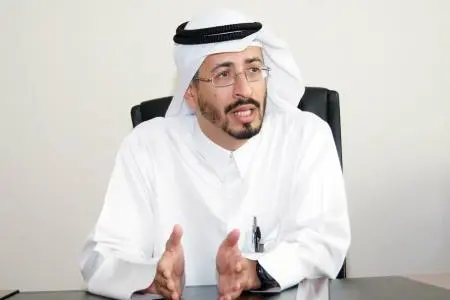PHOTO
Doha: Cancers of the head, neck, and oral cavity account for approximately 550,000 new cases worldwide each year and around four percent of malignant cancers diagnosed in Qatar, according to the 2015 National Qatar Cancer Registry.
Cancers of the head and neck include tumors in areas above the collarbone, with the three major subdivisions including oral cancer, laryngeal cancer, and nasopharyngeal cancer. This type of cancer typically starts in the mouth, nose, throat, larynx, sinuses, or salivary glands. There is a significant gender divide in the incidence rate for head and neck cancers, with three times as many men affected as women. Individuals over the age of 50 years are most susceptible.
Dr. Moustafa Al Khalil, Senior Consultant and Chairman of the Head and Neck Tumor Board at HMC, say symptoms vary depending on where the cancer is located in the head or neck but that pain and a lump or ulcer in the mouth that does not heal are among the most common symptoms.
“The symptoms of head and neck cancers can include a lump or sore that does not heal, difficulty swallowing, and a change in the sound of the voice (hoarseness). In some cases, head and neck cancers have early warning signs that lead to early diagnosis and a high rate of success in curing the disease. However, the majority of these cancers are diagnosed at a late stage, which makes them more difficult to treat. More than 60 percent of the diagnosed cases of head and neck cancer highlighted in the 2015 National Qatar Cancer Registry study were diagnosed as late stage cancers, with most occurring in individuals between the ages of 45 and 49 years. This is often due to patients experiencing a prolonged period with no symptoms, a delay in seeking medical attention, and late investigation. These factors all contribute to a late diagnosis,” explained Dr. Al Khalil, who is also HMC’s Operating Theater Director.
Major risk factors for cancers of the head and neck include tobacco use, alcohol consumption, and HPV infection. Environmental, hereditary, and occupational risks may also contribute to their development. While advances in treatment options are helping patients live longer, Dr. Al-Hareth M. Al-Khater, Deputy Medical Director at the National Center for Cancer Care and Research (NCCCR), says prevention and early detection are the keys to improving patient outcomes.
“As is the case with many cancers, head and neck cancer treatment has a much better chance of being successful if the right diagnosis is made early. Advances in surgical techniques, radiation, and chemotherapy are helping patients live longer while preserving their quality of life. However, when possible, prevention of cancer is the best defense. People who consume tobacco and alcohol should aim to quit and reduce their risk of developing these types of cancers,” said Dr. Al-Khater.
April is Head and Neck Cancer Awareness Month and healthcare professionals from across the world are gathering to raise awareness and broaden public understanding of the disease. As the leading healthcare provider in Qatar, HMC is using the opportunity to raise awareness of head and neck cancers, and cancer in general, by emphasizing the need for prevention and early detection and highlighting the importance of adopting a healthy and active lifestyle as a strategy to help reduce one’s risk of cancer.
-Ends-
About Hamad Medical Corporation
Hamad Medical Corporation (HMC) is the main provider of secondary and tertiary healthcare in Qatar and one of the leading hospital providers in the Middle East.
For more than three decades, HMC has been dedicated to delivering the safest, most effective and compassionate care to all its patients.
HMC manages twelve hospitals – nine specialist hospitals and three community hospitals – as well as the National Ambulance Service and home and residential care services.
In January 2016, HMC achieved the significant distinction of becoming the first healthcare system across the globe to have all its hospitals accredited by Joint Commission International under the Academic Medical Center accreditation program. Additionally, the National Ambulance Service, Home Healthcare Service, Stroke Service and Palliative Care, have all received this prestigious accreditation since 2011.
To meet the needs of a rapidly growing population, HMC has announced ambitious plans to expand capacity across its network through to 2030. This expansion plan includes a further three new hospitals in Hamad Bin Khalifa Medical City.
HMC is leading the development of the region’s first academic health system – combining innovative research, top-class education and excellent clinical care – and is committed to building a legacy of healthcare expertise in Qatar. HMC collaborates with key partners who are experts in Qatar and beyond, including Weill Cornell Medical College-Qatar, the Institute for Healthcare Improvement and Partners Healthcare, Boston.
HMC is also the first hospital system in the Middle East to achieve institutional accreditation from the Accreditation Council of Graduate Medical Education – International (ACGME-I), which demonstrates excellence in the way medical graduates are trained through residency, internship and fellowship programs.
For more information please visit: www.hamad.qa or contact Noimot Olayiwola, Media Project Manager Tel: (00974) 44390945; Mobile: (00974) 55568709; Email: nolayiwola@hamad.qa
© Press Release 2018



















